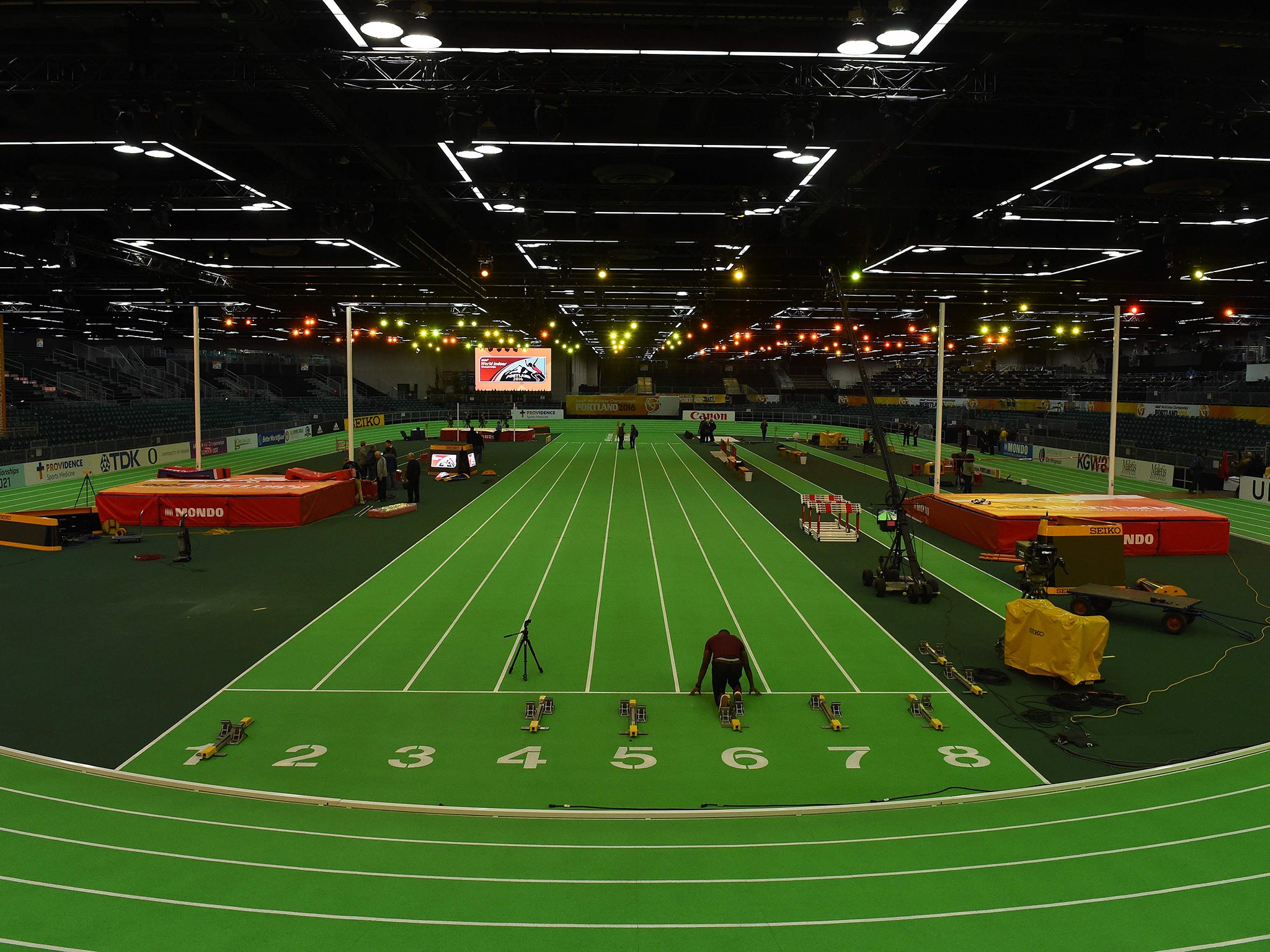World Indoor Championships 2016: Portland aims to turn spotlight away from doping and corruption scandals
However, the event is noticeable for its absentees: from the entire Russian team, banned from global athletics, to the British stars of Super Saturday at London 2012

Your support helps us to tell the story
From reproductive rights to climate change to Big Tech, The Independent is on the ground when the story is developing. Whether it's investigating the financials of Elon Musk's pro-Trump PAC or producing our latest documentary, 'The A Word', which shines a light on the American women fighting for reproductive rights, we know how important it is to parse out the facts from the messaging.
At such a critical moment in US history, we need reporters on the ground. Your donation allows us to keep sending journalists to speak to both sides of the story.
The Independent is trusted by Americans across the entire political spectrum. And unlike many other quality news outlets, we choose not to lock Americans out of our reporting and analysis with paywalls. We believe quality journalism should be available to everyone, paid for by those who can afford it.
Your support makes all the difference.In a place that goes by the slogan of “the city that works”, the International Association of Athletics Federations would like nothing more than Portland to work its magic in providing light relief from months of doping and corruption allegations.
The World Indoor Championships begin on Thursday against a backdrop of scandal and are noticeable for their absentees: from the entire Russian team, banned from global athletics, to the British stars of Super Saturday at London 2012.
The spectre of doping still looms, with the former European indoor 800-metre champion Nataliya Lupu a late withdrawal as the latest athlete to fall foul of what is seemingly Eastern Europe’s drug of choice, Meldonium.
Much like tennis player Maria Sharapova before her, the Ukrainian claimed she had been prescribed the medication for 15 years because of “changes in my cardiogram”. Meldonium has been banned since the start of this year.
Mo Farah’s coach, Alberto Salazar, based just a few miles away from the Oregon Convention Centre where these championships take place, is still part of an investigation by the United States Anti-Doping Agency.
Farah and fellow Brits Jessica Ennis-Hill and Greg Rutherford had all hinted Portland could be part of their 2016 plans, but Farah made it clear early on that the World Half-Marathon Championships in Cardiff in 10 days was more relevant in an Olympic year, while Ennis-Hill pulled out of the indoor season because of a fresh Achilles problem.
Rutherford has also withdrawn, citing a failure to recover from a chest infection and slight hamstring injury.
Britain still begin the championships, with aspirations to get close to the six medals from Sopot two years ago.
The team’s sprint ambitions look strong The British record holder for the 60m, 100m and 200m, Dina Asher-Smith, is in action along with Asha Philip but up against flying Dutchwoman Dafne Schippers, while James Dasaolu’s surprise win at the trials suggests he has shaken off last season’s problems.
Tiffany Porter has a strong record of 60m hurdles medals at major championships.
Britain could pull off a podium clean sweep with Shara Proctor, Lorraine Ugen and Jazmin Sawyers in the long jump, while if Chris Baker can replicate his high jump best of 2.36m the title could be his.
But the squad complained of a struggle to sleep on the eve of the event after a brass band spent much of the day by the team hotel running through all 150 or so anthems from the competing nations.
Coach banned for life over Briton’s tests
Former UK Athletics coach George Skafidas has been handed a lifetime ban from sport for doping offences relating to sprinter Bernice Wilson. The European indoor 60m semi-finalist was banned for four years in 2011 after testing positive for testosterone and clenbuterol.
UK Anti-Doping said the Greek coach had admitted to nine rule violations, committed in 2011 and 2015. Wilson also tested positive for clomiphene in February last year but her sanction was cut to 10 months owing to “the substantial assistance” she gave Ukad.
Join our commenting forum
Join thought-provoking conversations, follow other Independent readers and see their replies
Comments